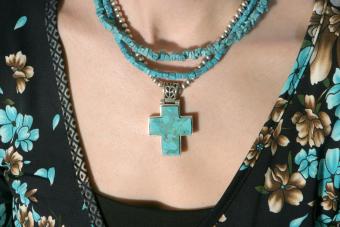
In order to get an accurate idea of the value of your jewelry, you'll need to have a professional appraisal. The cost will depend on the number of pieces you're having appraised, the complexity of the appraisal, and the experience level of the professional performing it. In general, you can expect to spend up to $150 per hour for an appraiser's time.
Typical Cost for Appraisals
According to The Knot, most appraisers charge by the hour or charge a flat rate for their services based on the complexity of the job. Most charge between $50 and $150 per hour. In order to use a flat rate, an appraiser must estimate the time it would take him or her to examine, research, and accurately assign a value to your items. You should receive an estimate up front before you have your jewelry appraised.
Factors Affecting Appraisal Cost
The cost of your appraisal will depend on a number of factors. Understanding these can help you choose an appraiser that fits your budget.
More Items Means Higher Cost
It will take less of the appraiser's time to evaluate a single engagement ring than it will to assess the value of your grandmother's entire jewelry collection. In general, the more pieces you need the appraiser to examine, the more he or she will charge.
Specialist and Experienced Appraisers Can Charge More
Certain items, such as antique jewelry pieces or items with cultural significance, will require expertise in an area. An appraiser with a specialty has experience and education in a certain topic and can charge more for his or her services. Expect to spend more if you need this expertise.
In addition, PriceScope notes appraisers that have been in the business a long time can charge more for their services, even if they aren't specializing in a certain type of jewelry. Their experience is valuable.
Expect to Spend More for Extensive Research
Sometimes, assigning value is simply about looking carefully at the materials and quality of the jewelry and comparing them to the market in general. However, there are also times when an appraiser needs to research a piece. This is especially true with antique jewelry, where the provenance, or history, of a piece can have a huge impact on its value. If the appraiser needs to spend several hours tracking down the background of your item in order to assign value properly, you'll pay more for the appraisal.
Larger Gems May Be More Expensive to Appraise
Gemworld International notes that in addition to the above factors, and appraiser may charge based on the size of the gem. This is because a larger gem may be more time consuming to evaluate, and there's also greater liability for the appraiser if he or she is not accurate in the appraisal.
Red Flags Regarding Appraisal Fees
While it helps to understand how appraisers calculate their fees, it's also important to know when to walk away from an appraiser because of the fees being charged. Watch for the following red flags as you choose an appraiser for your jewelry:
- Your appraiser should not charge a fee that's based on the value of the item. This is a conflict of interest and is not ethical.
- Unclear fees are another sign of trouble. You shouldn't be wondering what you'll end up paying for the appraiser's services. If you aren't completely clear, find a different professional.
- If the appraiser tries to purchase your jewelry or offers to sell it for you in exchange for a lower fee, Lavalier Jewelry Insurance reports this is a sign of an ethical issue. Work with a different appraiser.
Most appraisers are committed to ethical practices, so you won't encounter these issues with the majority of professionals.
Find an Appraiser You Can Trust
Understanding what you can expect to pay for a jewelry appraisal and what affects the price can help you find an appraiser you can trust. Most professional jewelry appraisers value this trust very highly and strive to give you an accurate, detailed report on the value and history of your jewelry.







